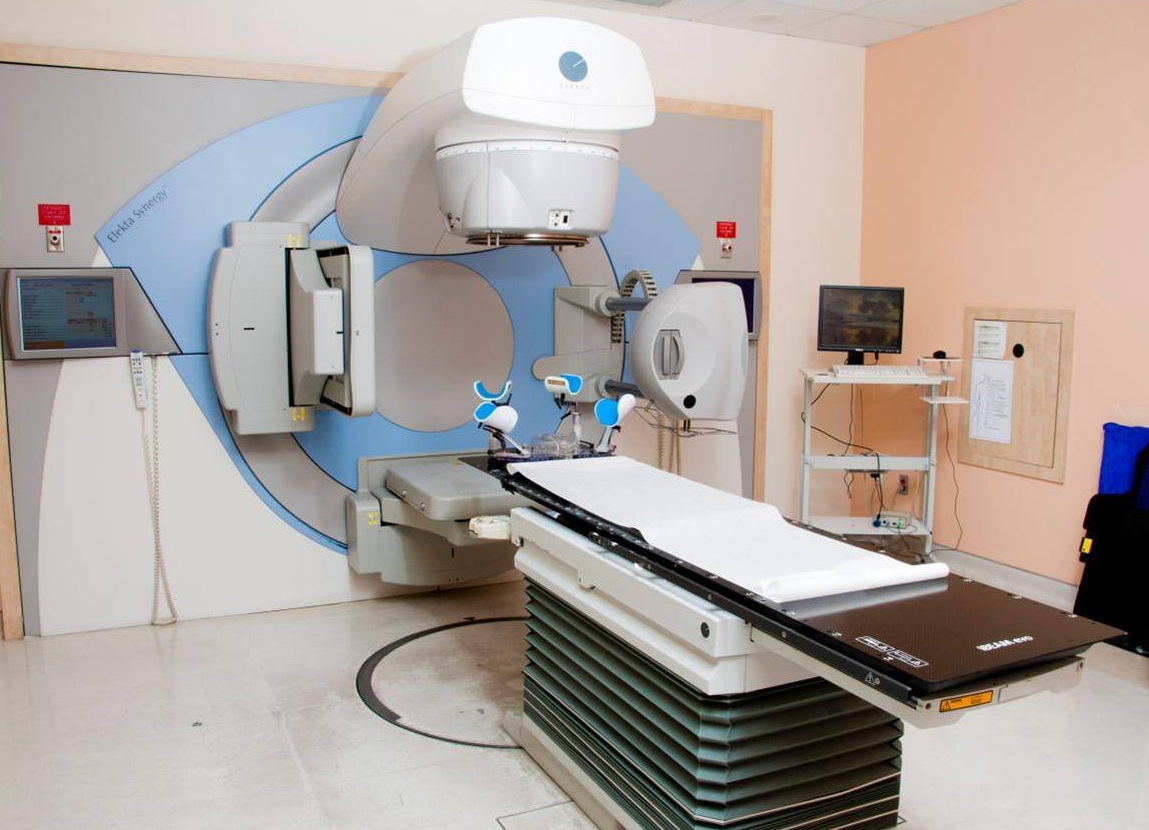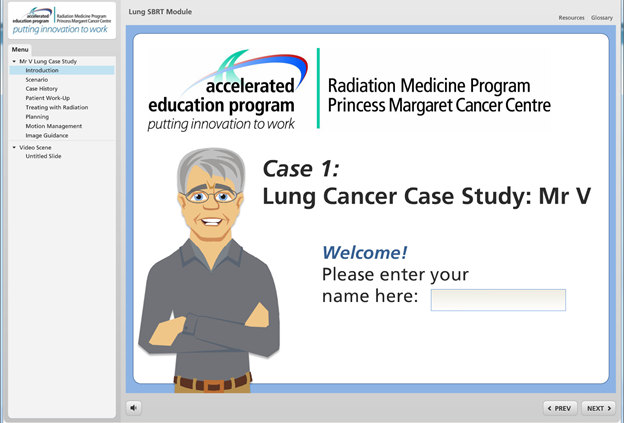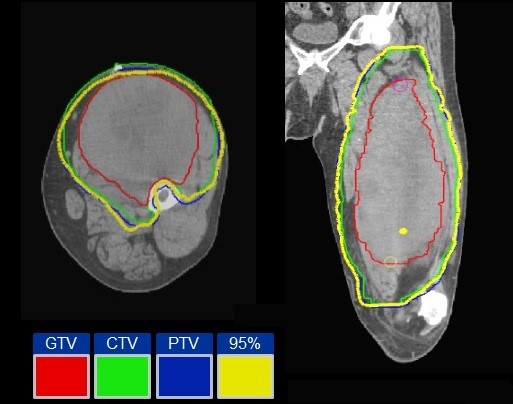Online Learning
-
Online Learning
Welcome to the Accelerated Education Program at the Princess Margaret's (AEPatPM) online CME offerings. Our online learning activities includess a variety of formats and approaches. We have some free learning opportunities as well as activities that have registration fees (modules and courses). Click on the “Learning Portal” in the top right corner to be taken to our Learning Management System for more information. Contact us directly if you have any questions or comments – aep@rmp.uhn.ca.
FREE Online Learning Modules
IGRT Primer: Using CBCT |
|
 |
Duration: 1 to 2 hours
Volumetric imaging has now become widely available for image-guided radiation therapy (IGRT), and gantry-mounted systems are poised to substantially alter radiation therapy practice. This module will provide learners with a conceptual introduction to components of IGRT that need to be considered for transition of IGRT into practice – in particular, cone-beam computed tomography (CBCT). The ideal properties of targeting systems for image guidance will be explored, and an overview provided of the strengths and limitations of the currently available image guidance tools will be provided, with a focus on CBCT |
Quality & Safety in Radiation Therapy Primer |
|
 |
Duration: 1 to 2 hours
Radiotherapy is an effective and safe treatment for cancer if delivered in an appropriate manner. The rapid introduction of new technology and the complex, multi-dimensional interprofessional nature of the radiotherapy planning and delivery process demand a high level of continuous monitoring, intervention and learning to assure that the most appropriate and safest treatment is always delivered to patients. This module will explore the importance of quality assurance in the context of modern radiotherapy, highlighting the value of integrated, complementary activities from the initial decision to treat with radiotherapy to delivery of the final treatment fraction. It will address the considerations regarding competing values that inform decision-making with respect to quality initiatives, and the basic elements of successful change management. |
Lung SBRT |
|
 |
Duration: 5 to 10 hours
This case-based, immersive emodule follows the journey of Mr. V. He is a patient that presents to a local ER with coughing and other respiratory symptoms. The interactive learning trajectory uses a variety of media to take the learner from initial presentation through to follow up – highlighting the important physical, pathologic, radiobiological, oncologic and technological principles that guide the assessment, decision-making and treatment of and for this patient. Relevant learning and reference resources are provided to augment the case-based exercise that allows the learner to customize the depth and breadth of the learning experience to suit individual learning needs. Broken into submodules, periodic assessment will permit the learner to test their learning and identify areas for further exploration. |
Soft Tissue Sarcoma Primer |
|
 |
Duration: 1 to 2 hours
Soft Tissue Sarcoma (STS) is a rare cancer with an incidence of 1.5 to 5/100,000 per year. This STS Primer provides a brief introduction to the disease – its incidence, etiology, presentation, routes of spread and principles of management including the use of radiation therapy. This module will take approximately 2 hours to complete, including a short pre- and post-course assessment. References are provided to allow the learner to continue their exploration of STS at the completion of the short module. |
